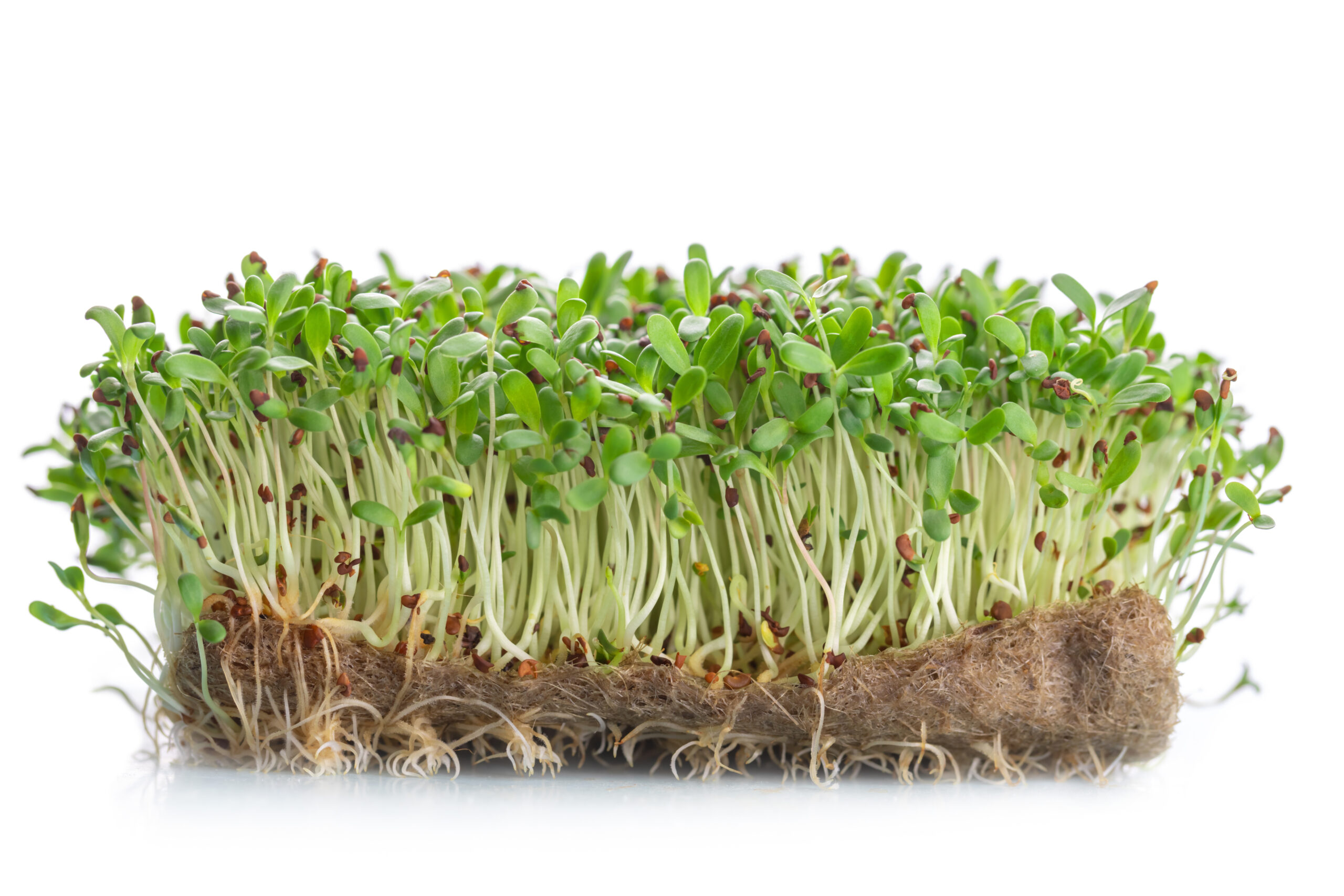Alfalfa, scientifically known as Medicago sativa, has a long history of use as a forage crop for livestock and as a dietary supplement for humans. However, it is the young shoots of alfalfa, known as alfalfa grass or simply “alfalfa sprouts,” that have gained recognition as a potent superfood in recent years. These tiny green sprouts are packed with essential nutrients and offer a wide range of health benefits. In this comprehensive article, we will explore the numerous advantages of including alfalfa grass in your diet and how it can contribute to your overall well-being.
What Nutrients Does Alfalfa Grass Contain?
Alfalfa grass is celebrated for its exceptional nutritional density, containing a wide variety of vitamins, minerals, antioxidants, and phytonutrients. Here’s a breakdown of some key nutrients found in alfalfa grass:
- Vitamins: Alfalfa grass is rich in vitamins, particularly vitamin A, vitamin C, vitamin K, and various B vitamins, including folate (vitamin B9). These vitamins play crucial roles in immune function, skin health, blood clotting, and overall well-being.
- Minerals: Alfalfa grass provides essential minerals such as calcium, magnesium, potassium, phosphorus, and iron. These minerals are vital for bone health, muscle function, and overall bodily functions.
- Chlorophyll: Alfalfa grass is a potent source of chlorophyll, the green pigment found in plants. Chlorophyll has antioxidant properties and may support detoxification and overall health.
- Antioxidants: Alfalfa grass is loaded with antioxidants, including flavonoids and polyphenols. These compounds help combat oxidative stress and protect the body from free radical damage.
- Amino Acids: Alfalfa grass contains various amino acids, including essential amino acids that the body cannot produce on its own. These amino acids are the building blocks of proteins and are crucial for tissue repair and growth.
- Dietary Fiber: Alfalfa grass provides dietary fiber, which is essential for digestive health, regular bowel movements, and a feeling of fullness.
- Phytonutrients: Alfalfa grass contains phytonutrients such as saponins, coumarins, and alkaloids, which have potential health benefits, including anti-inflammatory and anti-cancer properties.
Health Benefits of Alfalfa Grass
Here is a list of the key health benefits of Alfalfa Grass…
- Nutrient Density: Alfalfa grass is a nutritional powerhouse, offering a concentrated source of vitamins, minerals, and antioxidants. Including it in your diet can help ensure you meet your daily nutritional needs and support overall health.
- Detoxification: Chlorophyll-rich foods like alfalfa grass may support the body’s detoxification processes by helping to remove harmful toxins and chemicals.
- Antioxidant Protection: The antioxidants in alfalfa grass help protect cells and tissues from oxidative stress and free radical damage, reducing the risk of chronic diseases and promoting longevity.
- Heart Health: Alfalfa grass contains potassium, which can help regulate blood pressure and reduce the risk of hypertension and cardiovascular disease.
- Digestive Health: The dietary fiber in alfalfa grass promotes healthy digestion, regular bowel movements, and may alleviate symptoms of digestive discomfort, such as bloating and constipation.
- Weight Management: Alfalfa grass is low in calories but nutrient-dense, making it an excellent choice for weight management. It provides a feeling of fullness without adding excess calories.
- Blood Sugar Control: Some studies suggest that alfalfa grass may help stabilize blood sugar levels, making it of interest to individuals with diabetes or those looking to manage their blood sugar.
- Bone Health: Alfalfa grass provides essential minerals like calcium and magnesium, which are crucial for bone strength and may reduce the risk of osteoporosis.
- Skin Health: The vitamins and antioxidants in alfalfa grass promote healthy skin by reducing signs of aging and protecting against skin damage from UV radiation and pollution.
- Anti-Inflammatory Effects: Certain compounds in alfalfa grass may have anti-inflammatory properties, making it potentially beneficial for conditions characterized by chronic inflammation.
Ways to Incorporate Alfalfa Grass Into Your Diet
Alfalfa grass can be a versatile addition to your diet, and there are several ways to enjoy its benefits:
- Alfalfa Sprouts: Alfalfa sprouts can be added to salads, sandwiches, wraps, and omelets for a fresh and crunchy texture.
- Smoothies: Blend alfalfa grass with other greens and fruits in your morning smoothie for a nutrient-packed boost.
- Juices: Extract the juice from alfalfa grass and combine it with other vegetable and fruit juices for a refreshing and nutritious drink.
- Powdered Supplements: Alfalfa grass is available in powdered form, making it easy to mix into water, smoothies, or other beverages.
- Capsules or Tablets: For those who prefer a more convenient option, alfalfa grass is also available in supplement form.
Potential Alfalfa Grass Side Effects
While alfalfa grass offers numerous health benefits, it’s essential to consider the following precautions:
- Potential Allergies: Some individuals may be allergic to alfalfa. If you experience any adverse reactions, such as itching, hives, or difficulty breathing, discontinue use and seek medical attention.
- Medication Interactions: Alfalfa may interact with certain medications, such as blood thinners and medications for autoimmune diseases. If you are taking medication, consult with a healthcare professional before adding alfalfa grass to your diet.
- Pregnancy and Nursing: Pregnant and nursing women should consult with a healthcare provider before consuming alfalfa grass, as its safety in these situations is not well-established.
Alfalfa Grass Benefits Conclusion
Alfalfa grass, with its nutrient-rich composition and numerous health benefits, is a valuable addition to a balanced diet. Whether you are looking to support detoxification, improve heart health, enhance digestive function, or simply boost your overall nutritional intake, alfalfa grass can be a versatile and nutritious choice.
Incorporating alfalfa grass into your diet is relatively easy, thanks to its availability in various forms, including sprouts, powders, and supplements. However, it’s essential to approach any dietary change with moderation and consider potential allergies or interactions with medications.
By embracing alfalfa grass as a part of your wellness routine, you can harness the nutritional power of this remarkable superfood, promoting a healthier and more vibrant life while savoring its many potential advantages to your overall well-being.
Here are several superfood supplements that contain alfalfa grass: Best Green Drinks
REFERENCES
- WebMD
- Healthline
- The Antioxidant Properties of Alfalfa (Medicago sativa L.) and Its Biochemical, Antioxidant, Anti-Inflammatory, and Pathological Effects on Nicotine-Induced Oxidative Stress in the Rat Liver
- “King of the forage”—Alfalfa supplementation improves growth, reproductive performance, health condition and meat quality of pigs
I’m not just a supplement analyst. I’m an extremely qualified one! I am a Certified Nutrition Coach (CNC) and actually received my certification directly from the National Academy of Sports Medicine. I am also a Nutrition & Wellness Consultant, certified by the American Fitness Professionals Association (AFPA).



